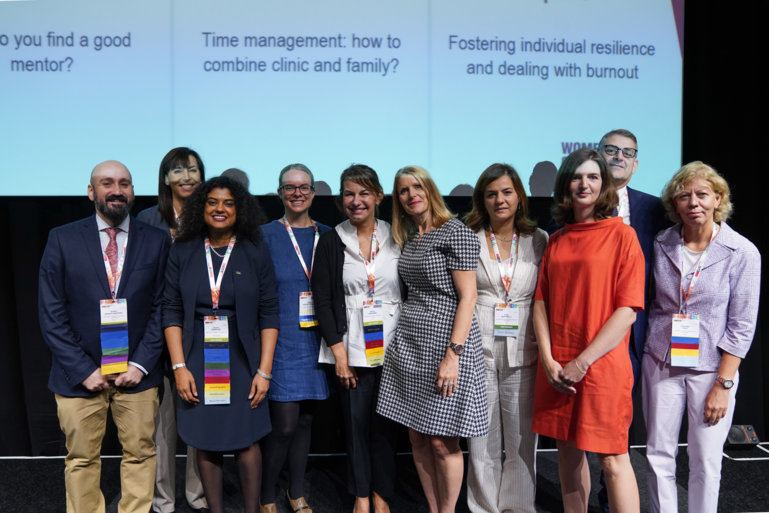Updated results from the ESMO Women for Oncology study monitoring the representation of women at major national and international congresses and societies
"Gender-related issues are not only of interest to female professionals, but the whole oncology community would benefit from ensuring a level playing field,” says Prof. Solange Peters from Centre Hospitalier Universitaire Vaudois (CHUV), Lausanne, Switzerland, Chair of the ESMO Women for Oncology Committee. "Offering the same opportunities for success to every professional, irrespective of gender, race or age, leads to a merit-based system that can advance research and practice in order to provide optimal care for our patients.”
With women now making up more than 50% of young ESMO members (<40 years), this year W4O joined forces with the ESMO YOC to organise its annual Forum - ‘Level playing field: working for gender balance in oncology’, open to all oncology professionals, of any age and gender, who want to play a role in leveling out the gender gap.In the first part of the Forum, updated results from the W4O study monitoring the representation of women at major national and international congresses and societies will be presented. This is the second year in which the systematic monitoring study has been implemented and the data collected during 2018 were compared to results reported from previous W4O studies, conducted since 2015.
This object has been deleted and is no longer available.
In 2018, only 1 out of 6 presidents of oncology societies was a woman: the same as in 2017,” comments Peters, giving a preview of the study findings. The study also investigated the association between the gender of a society’s President and the gender of its board members. "For the years 2017 and 2018, whether a woman or a man was sitting at the President’s desk did not influence the female representation of the society’s board. Interestingly, a much higher number of female board members was reported in societies led by a female president in 2016. This may reflect that recent initiatives addressing gender-related issues have been effective and have led to an increased commitment at the upper levels in oncology. However, this represents the optimistic perspective. This has to be strictly followed up in the next 2–3 years, or we could take a step back,” comments Peters, who will take over the presidency of ESMO for 2020–2021, becoming the second female President of ESMO.
Participants at the Forum also had the chance to hear about best practices in introducing gender balance in the workplace and get advice on how to overcome everyday hurdles. "The initiative aims to provide an overview of the current situation and increase awareness of the specific topics, issues and needs of W4O and YOC target group,” says Dr Anna Sophie Berghoff from the Medical University of Vienna, Austria, YOC representative. "Without a doubt, a shared target group are young women in oncology, which, fortunately, is a constantly growing group but who face several hurdles. Women still too frequently drop out of their career path when they start a family,” comments Berghoff. "Mentoring is important to overcome this vicious cycle; seeing and hearing the experiences of women who have a career in oncology helps young women to believe that they too can seek their own career in oncology.” The second part of the Forum will offer mentorship sessions.






